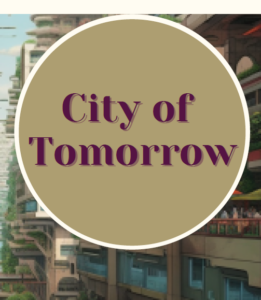How quaint shows like “Billions” and “Superstore”—with their circa-2019 work-world rows of desks and chock-full aisles– now look as our coronavirus-rocked culture has first scrambled and then reinvented itself. The tiny, deadly microbe has accelerated so many changes that were just emerging. For instance, our leading virtual lives. Elevating the seamless and the frictionless. Watching AI and robots take our jobs.
The ways in which we do business and interact with consumers, our friends and neighbors will never be the same as these shifts go supersonic. Here, Faith Popcorn’s BrainReserve applies its TrendBank to reveal five future forces to reckon with:
1. THE WANDERING WORKPLACE
Office life is on the verge of extinction. Why pay for desk space when only 25% of employees can safely come in and sit in a Plexiglas cube, as a fulltime cleaner, clad in PPE, continually swabs down the bathroom? No thanks. We’ll be productive wherever we may roam. Our pandemic “pause” is causing the office to skid to a full stop while blasting us full speed ahead to the workplace of Tomorrow.
Next: In the coming years, technology will zip ahead and seamlessly, Zoom-lessly connect us in digitized realms.
Already Zoom is seeming old-fashioned as Microsoft’s Hololens, Magic Leap’s Mimesys and Vizible allow for the creation of VR presentations as well as meeting and collaborating in ethereal environments. MeetinVR lets our avatars meet and bond as colleagues. Soon, this will be as common as texting.
Factories, restaurants and other businesses that once required human hands will be roboticized. Amazon’s Canvas allows warehouse robots to work in crowded conditions alongside people, a potential solution to the 6-foot social distancing. In Madrid, Marius Robles is opening Impossible Restaurant, an eatery that is robot-staffed and automated in every way. BMW has been “employing” robotic workers in its factories for years now.
Even scientific research will take place in a “cloud lab,” combining software, robotics and biology. Strateos’ labs are paving the way with their fully automated work cells, scalable for almost any size experiment.
Future: Further into Tomorrow, we’ll ditch our devices, and our brains will be entwined with the Internet via neural lace. One example: Elon Musk’s Neuralink, which implants a tiny chip in our brains, untethering us from our devices and intuitively linking us to all knowledge and communication. So no screens, no wires, no beeps, blips and disconnects. Wherever we work and exist – on Earth and beyond – our minds will be online.
2. BIG BROTHER IS HERE, THERE AND EVERYWHERE
With everyone working remotely, managers will want to ensure productivity. That will not change, and remote surveillance will boom.
Next: Just as we will all get used to Covid-19 contacts being tracked and traced by apps, so too will we accept keystroke-tracking and GPS surveillance to make sure we are doing our share on the job. There will be widespread adoption of “productivity monitoring” software like Hubstaff. Those toiling in the trenches will gulp nootropics, micro-doses of psychedelics and adaptogens to amplify their output and creativity.
Future: Who will need an app when our brains become receptive to implants? Employees will eagerly adopt (or be incentivized to accept) the insertion of chips that pump up productivity and ensure metrics are met. Bosses will also sync staffers’ gray matter with bespoke AI algorithms for maximum work mojo. The era of the Cyborg Staffer is dawning.
3. COMMUNICATION RECREATED
Humans are social. Communication and community have ensured our survival. Our basic, biologically mandated need to connect and collaborate will still rise and thrive.
Next: Many tasks typically require deep person-to-person connection and face-reading (imagine legal depositions, where eye contact and body language between lawyer and client is vital). We’ll find innovative ways to do this, with hyper-realistic avatars meeting in the ether. AI, like the Replika app, will create our avatars and evolve them to be more precise reflections of ourselves with every interaction. Tech will measure physiological response of those we interface with via pupil dilation and voice cadence, allowing for better tailoring of messaging too. “Send your avatars to work” day will be every day, and those who do emotionally rich jobs will be no exception.
Future: Communicating by thought instead of by speech emerges and revolutionizes work. Telepathic teams become common. We’re not that far away: Researchers at the University of California, San Francisco demonstrated that they could translate brain signals into complete sentences with ultra-low error rates. That kind of innovation, plus Neuralink, will mean we are soon freed from the spoken word, entering a new realm of idea sharing and support – boosting seamless work lives.
4. THE BOSS REBORN
As the way we toil is transformed, a new definition of leadership emerges. A fundamental shift is underway as face-to-face interaction vanishes, as the size of the human workforce shrinks and the ranks of robo-employees grows. The traits required to inspire and succeed will morph to both express deep empathy and a thirst for efficiency.
Next: PTSD will be rampant in our culture after the Covid-19 pandemic and massive unemployment, and the manager will become a compassionate caregiver to employees. Isolation can breed distress, and recognition of the toll of modern life will rise. Just as Facebook recently paid $52 million to moderators who were upset by the disturbing, violent content they had to monitor, so too will future C-suiters have to protect and pamper their human employees. Bosses will monitor productivity, but also mood, with emo-surveillance tools like face- and pulse-reading. Any worker who is upset and distracted will be served soothing and counseling in real time. Did you know that Jaguar Land Rover is experimenting with AI that allows cars to adjust to and optimize the driver’s mood? Soon, workers will be similarly scanned and enhanced and uplifted via tech solutions like Cogito, which improves human interactions.
Future: Welcome to the new world of health benefits. Supervisors will lure employees by implanting mood-enhancing regulators, delivering tweaks to boost their joy and pleasure quotient. Management must also ensure that workers’ avatars are coded for maximum happiness. We can’t have our digital doubles being depressed as they plug away on our behalf.
5. CAPITALISM CAPSIZES
The coronavirus pandemic has pushed us into not just a psychic but a financial depression. “This is going to take longer and look grimmer than we thought,” Nicholas Bloom, an economist at Stanford University, said of the path to recovery. He estimates 42% of recent layoffs – now standing at about 40 million in the U.S.– will be permanent. Support for Universal Basic Income (UBI) will rise along with unemployment levels.
Next: Stimulus checks to citizens during Covid-19 crisis have bolstered acceptance of UBI, which will becomes a fact of life. As automation outstrips job growth, government payments will fill the gaps. Welcome to our Post-Capitalist world.
Future: LeisureLife arrives. As AI and bots fill more jobs, a new Pleasure Economy rises to give visceral thrills to those freed from toil. Companies that can enrich free time will soar. Virtual travel, food experiences, self-improvement, creative pursuits, digital sex – all will be sought as ways to engage talent. Brands and managers must recognize and then sate pleasure-seeking, as a human need and a worker perk for a job well done.
THE FIELDS OF THE FUTURE
The sectors that will soar as we steer towards 2030:
- E-learning: From online courses to brain implants, knowledge is power.
- E-commerce: Satisfying the consumer’s needs without making them leave their Podcoons (mobile live/work spaces).
- Tele-health: From wellness visits to medical procedures to mental health, it’s all happening virtually. Emotional support will be vital for years post-pandemic as society reels from what it’s lost.
- Transportation: Re-creating our current system for a post-Covid-19 world and investing in space and time travel.
- AI and Robotics: Reinforcing and replacing our workforce as we enter this new stage of human evolution.
- VR and AR: Building our brave new virtual world.
- Pleasure Economy: If it makes the worker feel good, implant it!
- Localization of manufacturing and services: Providing security in case of pandemics, power failures and supply-chain disruption.
- Eco-services: Responding to climate change as an urgent priority.
- Space colonization: To ensure our survival as a species. Beyond the issue of climate change, humans will face the next pandemic: more lethal pathogens with a speedier spread. There must be the ability for planetary jumps.




